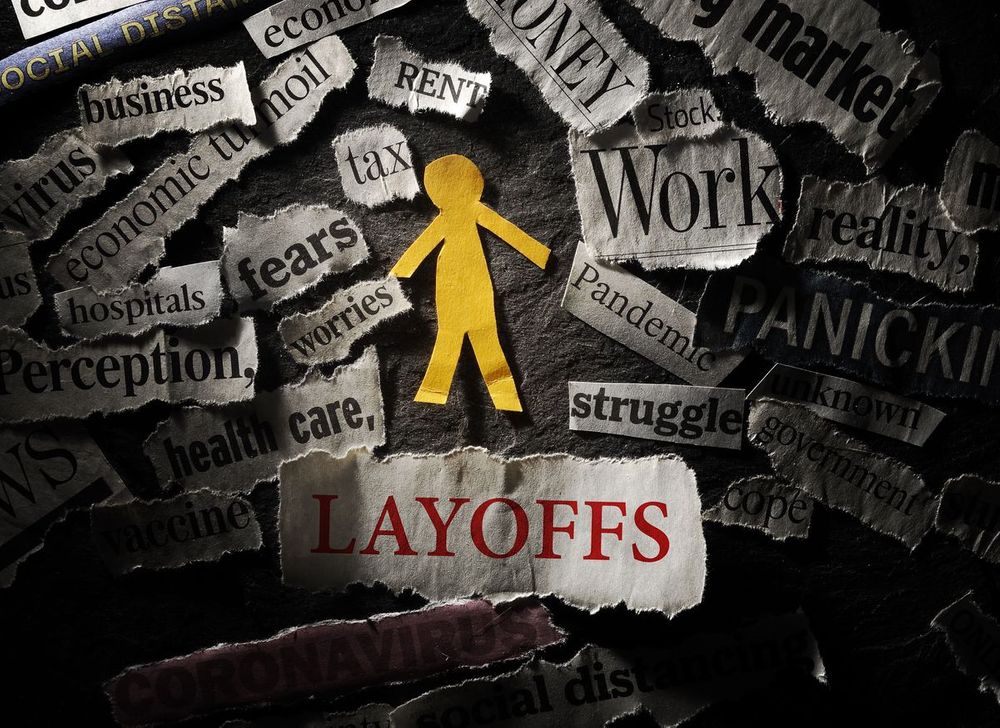
Lately, the job market has been holding on steady and strong. But people keep bringing up a recession, and this is causing some confusion and worry. There are some indicators showing that the economy is nearing a recession, but the job market so far seems to be great for prospects. Will that all change soon?
First, you should know that there's no way to say whether or not a recession is coming. It's impossible to predict the economy, but it is possible to use current indicators to guess what might happen.
The first warning sign is high inflation. For months, inflation has made the cost of goods and services quite high. Another sign is the volatility of the stock market. Right now, there's a great deal of risk associated with the market. Based on history, this usually happens right before a recession.
Finally, there's the issue of a tightening housing market. Interest rates and rents are up, which leaves people in a precarious position. Many households are struggling to pay for their rent or mortgage.
Despite those concerning trends in the economy, the employment sector isn't showing too many signs of trouble. According to a recent jobs report, unemployment rates are at 3.5%. That rate is lower than it has been in years. There are plenty of jobs available, and job seekers are facing favorable conditions.
The one issue is the talks about layoffs. If you read the news, you might see several articles about hiring freezes and layoffs. Job losses are happening mostly in the tech, mortgage, and housing industries. Meanwhile, Wayfair, Apple, and Walmart all announced cutbacks.
Nevertheless, there are almost twice as many job openings for unemployed individuals. Back in June 2022, there were over 10 million jobs available. Layoffs across the board have remained steady since early 2022. Some experts note that the job market is often the last sign of a failing economy, so the current state of the market doesn't mean we're safe from a recession. It might just be a matter of time before the job market starts to decline.
Here are a few questions and answers about the current market:
The Federal Reserve interest rates have a direct impact on everyone. When the rates rise, borrowing money doesn't just become more costly for individuals. The rate hike also impacts businesses. Because most businesses depend on debt, the higher rates can result in businesses reducing their operating costs. They may cut staff to offset the more costly debt.
If you have been unemployed for months or even years, you should know that you're in luck. The current job market favors job seekers. In the leisure, hospitality, and business sectors, there are more jobs now than there were in July.
Another reason you should have better luck now is the fact that employers are overlooking resume gaps. If you have concerns about an employer noticing your lengthy unemployment period, you should seek a job now. During Covid, people had many excuses not to work. A hiring manager should be very understanding of the gap if it occurred during the pandemic.
With layoffs looming, you might be hesitant to ask for a raise. However, the current job market gives skilled employees an upper hand. In an effort to keep employees, many businesses are willing to offer raises. They don't want to lose their good workers and have to struggle to fill vacant positions.
Due to high inflation, now is an acceptable time to ask for a raise. But don't use inflation as a reason to seek higher pay. Before you speak with your employer, think about all of the reasons you deserve a raise. The topic shouldn't be about your family or bank account, but instead should be about your assets and value as an employee.
If your industry just had layoffs, you could have concerns about finding a new job. In June, it took about 22 weeks for individuals collecting unemployment insurance to find work. While this timeline isn't true for everyone, it prepares you for what to expect. You might need to pivot and take work in a growing industry. If you truly have concerns, start looking at job postings and see what interests you.
The key to thriving after a layoff is to prepare. Before you lose your job, there are a few things you can do to ease your struggle. For one, communicate with your employer. Show them your value and productivity. If you give them a reason to keep you around, you might have more job security.
Additionally, you should prepare your own finances. Start saving up your money, and create a strict budget. If you lose your job, you need a financial cushion to ease the burden. By saving up money, you can take away the stress that comes from scrambling to get another paycheck.
As previously mentioned, you can also prepare for layoffs by looking for another job. No sector is safe from layoffs, but some are safer than others. Research the economy and look into recession-proof jobs. Because it's such a favorable market, you may be able to find a great job in a safe industry. It's also a great time to shift focus and pursue a career you have always wanted, particularly if your dream job is in a promising industry.
No one knows what will happen in the next few months or at the end of the year. But you don't need to worry. Whatever occurs, you're not alone. You have help with the job search and can create a plan for the worst-case scenario. Even if there's a recession, you can have some security and comfort.
Lorem Ipsum is simply dummy text of the printing and typesetting industry. Lorem Ipsum has been.
